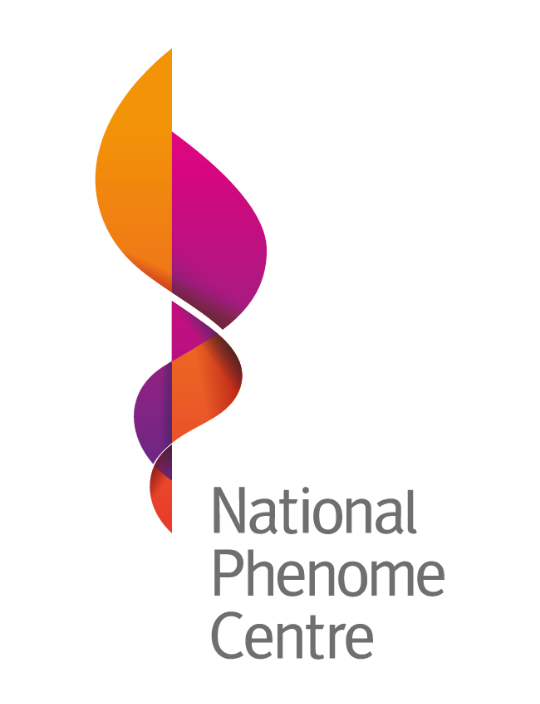- Academic Research
- Pharma and Wellness
- Epidemiology and Aetiology
- Clinical and Diagnostics
- Food and Nutrition

With its roots in pioneering metabonomics research at Imperial College London, the Center has collaborated academically since its inception across a broad range of application areas ranging from rare diseases and niche specialisms to global and societal challenges. With active projects in cancer research, gut health, cardiovascular disease, diabetes, dementia, nutrition and many more, the Centre has developed a uniquely tailored platform and created the fundamental ingredients within our analysis suite to facilitate:
- A deeper understanding of the phenome and a wide coverage of the metabolome
- High fidelity identification and quantitation of metabolites
- Accurately-curated database of metabolites
- Data interpretation and modelling infrastructure
This robust and proven technology has provided mechanistic insights to human physiology phenome, enabling answer a wide variety of research questions and will continue to do so.

Metabolic profiling has the potential to reduce risk, attrition and cost at every stage of the Pharmaceutical R&D pipeline. It offers the means by which disease and drug endpoints can be measured.
- Aid in preclinical drug development by elucidation of the mechanism of action of drugs, its efficacy studies and of quality control downstream. Additionally, the technology can be used to profile mutant and transgenic mice and give insight into the human diseases they are intended to simulate. This facilitates an improved appraisal of the relevance of these animals for use as disease models and for drug efficacy studies.
- The platform can facilitate in the toxicological evaluation of drugs. Metabolic profiling can be used in the identification the biochemical mechanism of toxicity, the target region of toxicity, the identification of biomarkers of toxic effect and the evaluation of the time course of the toxic effect (onset, evolution and regression).
- Metabolic profiling has long been used in the diagnosis of disease via the identification of biomarkers. The biomarkers are then typically translated into diagnostic devices which may be used by physicians to support and clarify their clinical decision making. The NPC platform may be used for the discovery of predictive, causal, diagnostic and progression, regression, or outcome of treatment related biomarkers.
- Furthermore, because drug metabolism varies based on ethnicity, gender, age, weight, height, environmental and physiological variables and diet, the suite of NPC assays may also be used predict the most appropriate treatment, responses to these therapeutic interventions, to determine drug resistance and the potential for disease relapse. It may also be used to “rank” the beneficial effects of pharmaceuticals.
- The platform may also be employed to determine treatment adherence and the patient’s use of alternative treatments consequently assisting in understanding co-administration of complementary treatments.
The application space for metabolic profiling in drug discovery and development is vast. We offer a series of metabolomics services that can be mapped on to every stage of the R&D value chain, from the candidate discovery stage to efficacy and toxicological studies at the preclinical stage, to broad range, targeted panels and tailor made clinical biomarker assays in the clinical stage.
Wellness:
Metabolic profiling has also found a space in sports, cosmetics and consumer goods research. It is accelerating the discovery of biomarkers, which when applied to sensor technology may be used to create wearables and other personal care products.

Classic epidemiology involves large scale studies that typically relate lifestyle and environmental exposures to disease end points. Metabolic profiling offers a high resolution read out of the underlying complex traits and disease mechanism to define the phenotypic signature. It has been used to understand disease aetiology, toxicological mechanisms and exposure biomarkers. There are several large scale initiatives in various countries to recruit and collect samples from the population for both genetic and metabolic analysis.
In the coming years this population scale data sets will be integrated, not only to develop a clearer understanding of a normal profile of health, but also to aid researchers develop and validate the tools that will enable health care providers to diagnose and treat disease.
The NPC engages with a number of researchers in the field of epidemiology, this along with its roots in systems biology places the NPC in a unique position to deliver and integrate metabolic data for these large scale, multi-omics initiatives. These innovative programmes are a step forward in delivering tools for precision medicine in clinical practice.

There is a significant body of scientific work demonstrating the use of metabolic profiling to aid in clinical decision making and in the development of diagnostic tools. The NPC platform and database can be used to support clinical trials through patient stratification, monitoring patient treatment adherence, assessing dose response and toxicological effects and in the discovery and validation of biomarker panels. The following case studies highlight some of the studies carried out by the center in this area.
Liver failure decision making; getting it right first time with metabolic profiling
Liver disease is the fifth commonest cause of death in the developed world. The global burden of liver cirrhosis is rising owing to an increased prevalence of alcohol and non-alcoholic-liver disease. Standardised mortality in the UK has risen by 400% from 1970 and the incidence of patients with cirrhosis in UK intensive care units (ICUs) has tripled since 1998. ...
Full case studyUrinary Metabolic Phenotyping of Women with Lower Urinary Tract Symptoms (LUTS)
Lower urinary tract symptoms (LUTS), including urinary incontinence, urgency and nocturia are highly prevalent across all ages, and more than half of women worldwide experience at least one. The condition affects quality of life, daily activities and it has significant effects on physical and mental health. In addition, it means a significant economic burden, with direct costs estimated to be $11 billion/year in the United States alone for overactive bladder (OAB), the most prevalent LUTS....
Full case study
Classic epidemiology involves large scale studies that typically relate lifestyle and environmental exposures to disease end points. Metabolic profiling offers a high resolution read out of the underlying complex traits and disease mechanism to define the phenotypic signature. It has been used to understand disease aetiology, toxicological mechanisms and exposure biomarkers. There are several large scale initiatives in various countries to recruit and collect samples from the population for both genetic and metabolic analysis.
In the coming years this population scale data sets will be integrated, not only to develop a clearer understanding of a normal profile of health, but also to aid researchers develop and validate the tools that will enable health care providers to diagnose and treat disease.
The NPC engages with a number of researchers in the field of epidemiology, this along with its roots in systems biology places the NPC in a unique position to deliver and integrate metabolic data for these large scale, multi-omics initiatives. These innovative programmes are a step forward in delivering tools for precision medicine in clinical practice.
